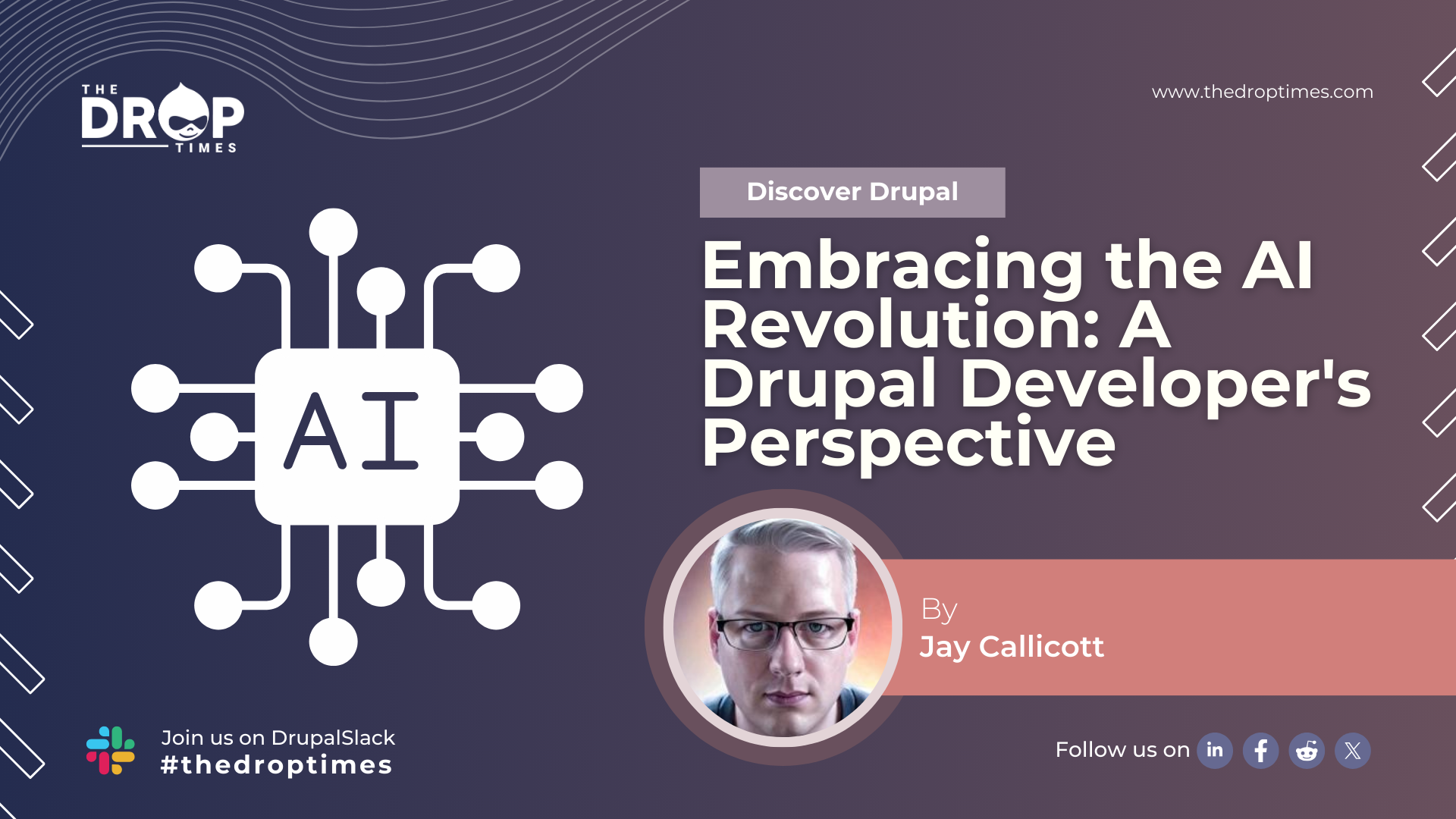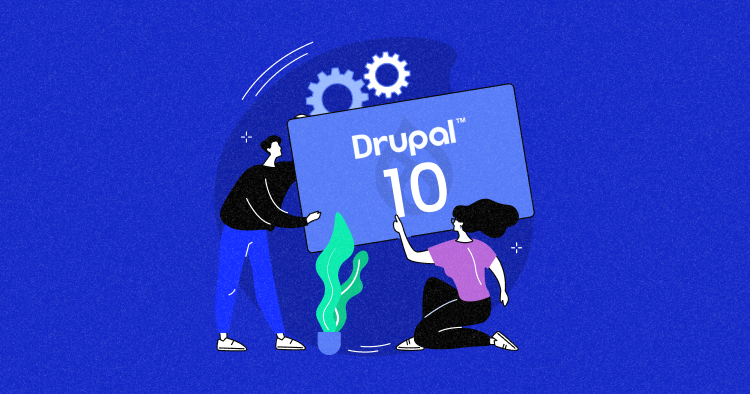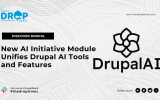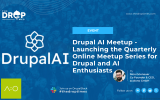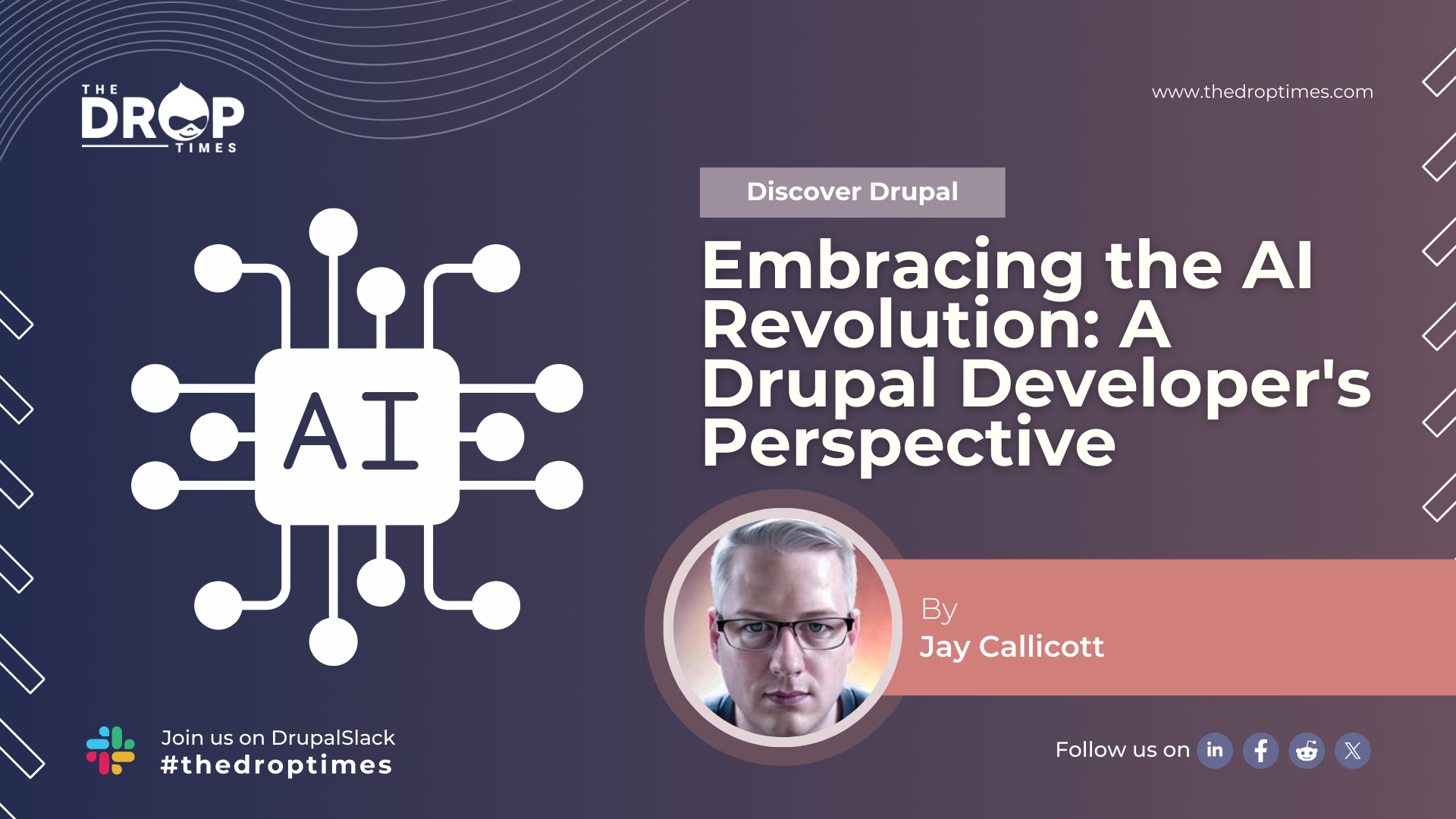Embracing the AI Revolution: A Drupal Developer's Perspective
In today's rapidly evolving technological landscape, understanding exponential change is one of the greatest challenges we face. Our human brains are naturally wired to think linearly, but exponential growth—especially in the realm of artificial intelligence (AI)—is a different beast altogether. As developers, we need to shift our mindset and adapt to these changes or risk becoming obsolete.
The Parable of the Chessboard

To illustrate the concept of exponential growth, consider the ancient parable of the chessboard. The story goes on to say that a wise man invented the game of chess and presented it to his king. The king, fascinated by the game, asked the man to name his reward. The wise man requested a seemingly modest payment: one grain of rice on the first square of the chessboard, two grains on the second square, four grains on the third, and so on, doubling the amount of rice on each subsequent square.
The king readily agreed, thinking the request was trivial. However, as the grains of rice multiplied exponentially, the king soon realized the enormity of the request. By the time he reached the 64th square, the total amount of rice required was staggering—enough to cover the entire surface of the Earth several times over. This story perfectly encapsulates the deceptive nature of exponential growth: it starts small and manageable but quickly becomes overwhelming.
The Unstoppable Force of AI
In my opinion, avoiding AI altogether is no longer a viable option. The reality is, whatever you think AI can't do today, it will likely be able to accomplish soon. While there are significant challenges—legal, ethical, and otherwise—I believe many of these issues will be resolved over time. The AI train has left the station, and we must figure out how to adapt.
It was always inevitable that a day would come when software could essentially write itself. Software follows a structured system of rules, making it relatively easy to automate. Drupal, known for its well-structured approach, stands to benefit greatly in the AI revolution.
At times, I find AI frustrating. I expect it to accomplish a task effortlessly, only to receive unusable results. Occasionally, I end up shelving my AI tool in frustration. However, what I—and many others—have discovered is that the quality of an AI's output is heavily dependent on the quality of the prompt. This is why prompt engineering is such a critical skill for developers. Without it, you risk falling into the garbage-in, garbage-out cycle and prematurely concluding that "AI sucks."
The Power of Prompt Engineering
As an independent developer, I've been blown away by the capabilities of AI. If I, just a humble code-monkey, can achieve impressive results with limited resources, the potential for large companies with extensive budgets and cutting-edge technology is mind-boggling. It's both exhilarating and a bit intimidating to think about, especially since, like many others, I'm working hard to carve out my place in this rapidly changing environment.
While many of the code automation tools are likely to be proprietary, I see opportunities in the realm of open source. I firmly believe in the power of open source to democratize access and level the playing field.
Building the Future with AI
For my part, I have focused on harnessing AI to empower developers to efficiently and effectively build Drupal applications. Central to this effort is the DrupalAI module, which encompasses AI experiments and proofs of concept aimed at streamlining the creation of features such as block configurations, content types, and single directory components.
The advent of GPT-4, equipped with the ability to interpret image inputs, opens up even more avenues. I can envision creating entire sophisticated Drupal applications directly from Figma screengrabs and text prompts. I anticipate that I'll be able to achieve something similar with my tools and code within a matter of months.
Tasks that once demanded months of development effort can now be completed in days, and what previously took days may be achieved in mere minutes. This rapid acceleration in development capability marks a paradigm shift for developers utilizing AI tools, empowering them to innovate and deliver with unprecedented speed and efficiency.
The Accelerating Pace of Change
Just like the grains of rice on the chessboard, the pace of technological change accelerates rapidly once it passes a certain point. We are on the cusp of a transformation that we are not fully prepared for, and it's happening faster than we think. Unlike linear change, disruptive technology often progresses slowly at first, then accelerates suddenly and dramatically. As engineers, embracing this revolution is imperative.
Conclusion
The AI revolution is not just on the horizon—it's already here. We must understand and adapt to exponential change and embrace open-source innovation to stay ahead of the curve. AI is fundamentally reshaping the development landscape, and our best path forward is to harness its power within the open-source community.
By adapting to these changes, we can succeed in a world where AI is a core part of our development toolkit. Let's not just witness the future—let's actively build it.



